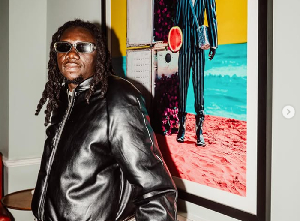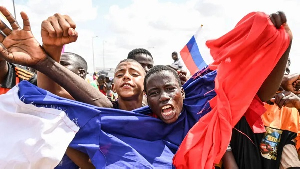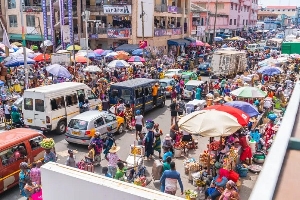Accra, Aug. 11, GNA – Ms Vivian Lamptey, Commissioner of the Commission on Human Rights and Administrative Justice (CHRAJ), on Thursday said the Commission would continue to hold discussions with fetish priests and traditional leaders on ways to stop “trokosi” in the country.
She said even though the practice of “trokosi” had reduced significantly due to efforts of the Commission and other human rights non-governmental organizations (NGOs), there still existed pockets of servitude and coercion.
Ms Lamptey was speaking at a workshop on Religion, Culture, and Human Rights in Ghana organized by the African Centre for Development Law and Policy (ACDLP) in Accra.
The workshop, which was partnered by CHRAJ, Ministry of Women and Children’s Affairs and Centre for National Culture, Volta Region, was aimed at engendering dialogue and discussions on the practice of “trokosi” and related practices such as the “fiashidi”.
Trokosi is a practice in Ghana, Togo and Benin where fetish shrines take human beings, usually young virgin girls, in payment for services, or in religious atonement for alleged misdeeds of a family member.
Ms Lamptey said out 17 “trokosi” shrines monitored by CHRAJ in the Volta Region from the beginning of 2011 only six girls were found to have been taken to two shrines.
She said the criminalization of the practice was not the best way to tackle the problem.
Ms Lamptey said even though the “trokosi” practice violated the rights and freedoms of the people involved, the prosecution of perpetrators would serve as the last resort of the Commission.
Mrs Marian Atta-Boahene, Deputy Executive Director and Director of Programmes, the Ark Foundation, said the decriminalization of the “trokosi” practice would not be in the best interest of the country.
He said Ghana was a signatory to many international conventions that frowned on any practice which forced women into servitude and slavery and violated their fundamental human rights as enshrined in the 1992 Constitution.
She insisted that the “trokosi” practice still existed in the country and urged CHRAJ to intensify its efforts to clamp down on the activities of the perpetrators, especially the fetish priests at the various shrines.
Osofo Kwakuvi Azasu, High Priest of the Afrikania Mission, said the whole idea that the “trokosi” practice was a violation of women’s rights was coming out of a misconception.
He said the “trokosi” shrine was nothing but a convent where women who were privileged in society were sent to be trained to become useful to the community through skills training.
Osofo Azasu said the claims by NGOs and people who purported to be liberating these “trokosi” women were false since there was no such thing as slavery and servitude at the “trokosi” shrines.
He said the NGOs who went to North America and Europe to portray that there was slavery in Ghana and needed funds to liberate them were doing that for their own selfish benefits.
He said “trokosi” was part of the African religious practice and so the attempt by the NGOs with support from Western countries was a means to destroy the enhancement of African spirituality.
General News of Friday, 12 August 2011
Source: GNA
CHRAJ is keen to stop trokosi - Ms Lamptey













